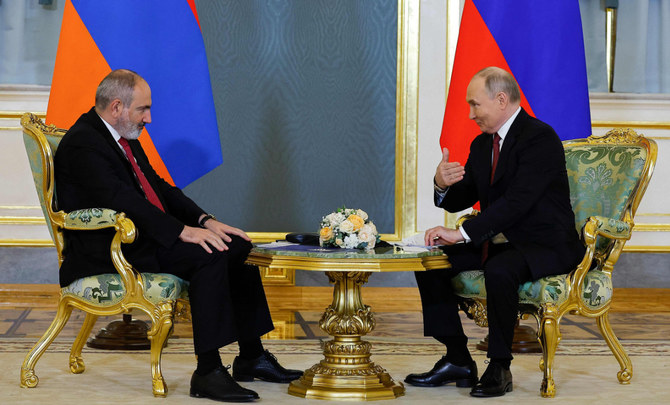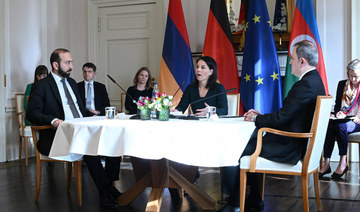New Delhi: When she found out she was pregnant with her second child last year, Rinkal Ramani vowed to do things a little differently.
For the last seven months, the 30-year-old has been following guided and routine prompts that appear on her phone screen in the hopes of nurturing her dream baby.
“We can give a kid an education, a certificate, but we cannot give the sanskar, or purity, that comes only from the mother’s womb,” Ramani told Arab News.
“I want an ideal child seeped in the Indian culture, who does not get swayed by other external influences.”
Ramani is referring to a practice known as garbh sanskar, which is popular in the western state of Gujarat, and claims that the nurturing of a child and the creation of an environment conducive to instilling a Hindu value system begins in the womb.
“I did not do the garbh sanskar course during my first pregnancy five years ago, and I feel that my 5-year-old girl does not listen to her parents — she quarrels, and she does not share. We decided to join the course so that my second kid is not wayward from the beginning,” she said.
Along with an increasing number of women in Hindu-majority India, Ramani is subscribed to an app that combines traditional guidance with scientific research, offering wellness practices and dietary plans, as well as daily developmental activities ranging from yoga to story reading and lullabies.
These apps, which have been taking off in Gujarat, act as a guide to child-rearing for many expecting mothers in India, as it transforms cultural and religious traditions passed down from elders into accessible formats and fact-checked curation that one can easily tap into from the palm of one’s hand.
Dhaval Chheta, co-founder and CEO of one such app called DreamChild, said that over 250,000 women — mainly from Gujarat — are subscribed to it.
“We decided and designed 25 daily basis programs for pregnant ladies … The app tells the mother how much she should walk, how much she should eat and drink, what activity she should practice – all these things are guided by the app,” Chheta told Arab News.
Some days, expecting mothers like Ramani would be given a mental puzzle to solve, one of various activities requiring around 40 minutes daily to develop the child’s intellectual, emotional, physical, and spiritual quotients.
The rise of garbh sanskar apps reflect a lifestyle change in Indian society, Chheta said, which has grown more dependent on smartphones and where a growing number of multi-generational families no longer live together.
“We used to have a joint family, so many cultural practices and beliefs used to come to us as legacy. But now people are living an isolated life, our thought processes have also changed. Our challenges to lead a normal life have increased,” Chheta said.
DreamChild, which was founded in 2018, hopes to reach 10 million parents by 2025, and is part of a larger mission to “make a new India,” he added.
“India is the land of saffron, land of spirituality, land of Hinduism. Our core purpose is to make India a proud nation.”
The rise of these pregnancy apps can also be traced back to the growth of garbh sanskar itself in Gujarat, where it is fairly well-known and taught through in-person courses.
Dr. Karishma Narwani, an Ayurvedic doctor and director of the Garbhopnishad Foundation who first taught the course over 15 years ago, said she has trained over 1,000 couples.
“The children born after the garbh sanskar are different and superior and we are documenting these. We have noticed that (with) a mother who had a second child after following the garbh sanskar course, the child is healthier and without any genetical anomalies,” Narwani told Arab News.
But for Gujarat-based sociologist Madhubhai N. Gayakwad, the rising practice of garbh sanskar is “a symptom of growing religiosity in society.”
He told Arab News: “As a sociologist I believe that religious influences play a great role in determining who joins the garbh sanskar program. If you look at the people who join the program they are heavily soaked in religious beliefs and practices.”
Gayakwad added: “If we look from the perspective of a sociologist I don’t think the garbh sanskar can really bring you an ideal child … I believe that a child’s real development and his personality development takes place depending upon his upbringing, the situation in the family and circumstances.”
























